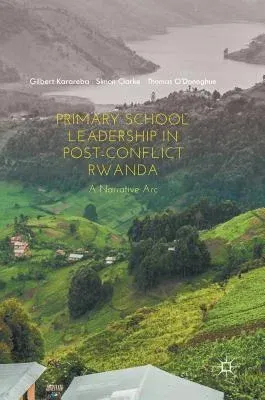Gilbert Karareba
(Author)Primary School Leadership in Post-Conflict Rwanda: A Narrative ARC (2018)Hardcover - 2018, 29 August 2017

Qty
1
Turbo
Ships in 2 - 3 days
In Stock
Free Delivery
Cash on Delivery
15 Days
Free Returns
Secure Checkout

Print Length
242 pages
Language
English
Publisher
Palgrave MacMillan
Date Published
29 Aug 2017
ISBN-10
3319602632
ISBN-13
9783319602639
Description
Product Details
Book Edition:
2018
Book Format:
Hardcover
Country of Origin:
NL
Date Published:
29 August 2017
Dimensions:
21.01 x
14.81 x
1.6 cm
ISBN-10:
3319602632
ISBN-13:
9783319602639
Language:
English
Location:
Cham
Pages:
242
Publisher:
Weight:
453.59 gm